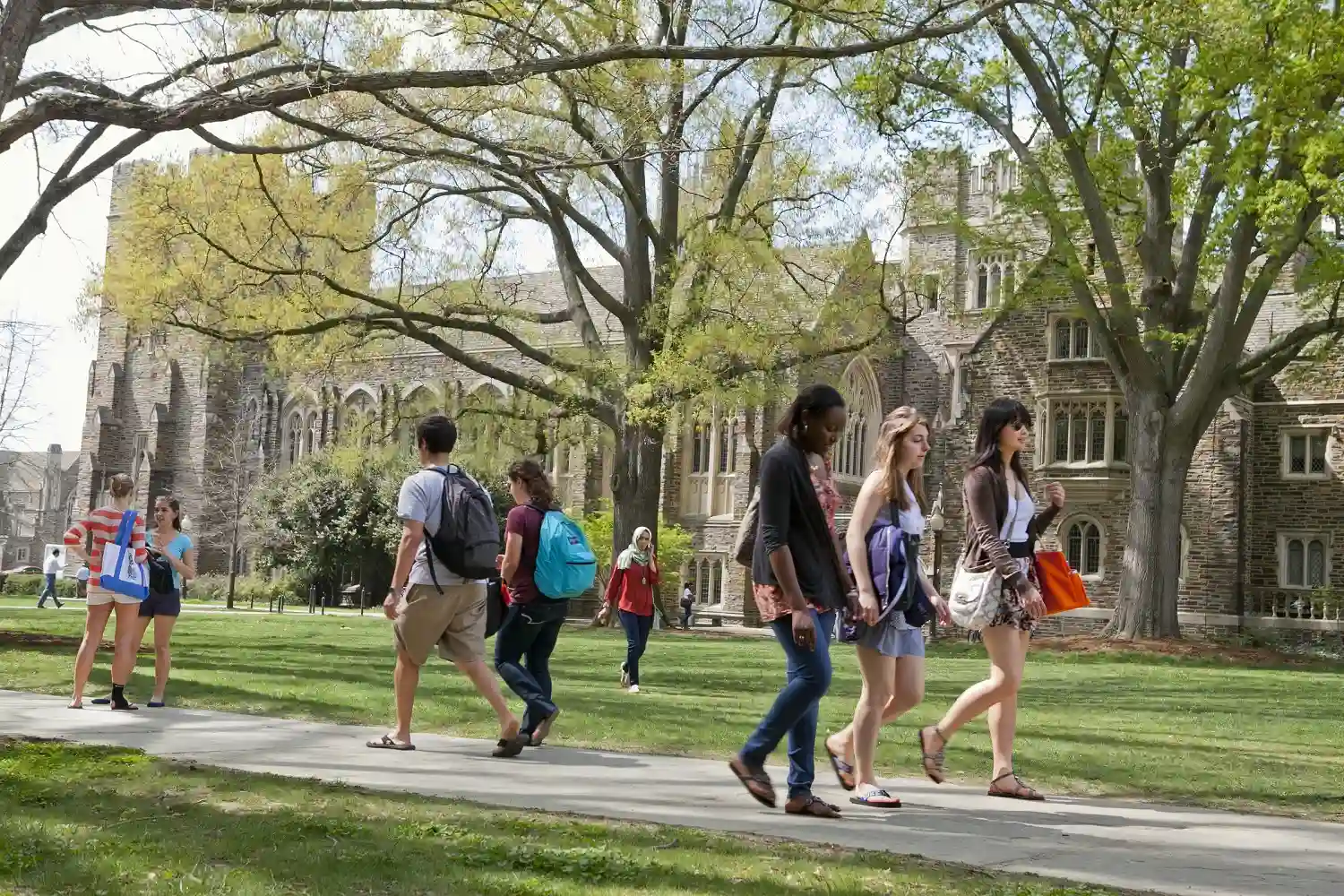Study abroad programs are transformative experiences that allow students to explore new cultures, languages, and educational systems while earning academic credits. Whether you’re seeking to expand your professional opportunities, immerse yourself in a new environment, or simply take a break from the traditional classroom setting, studying abroad can be the perfect opportunity for personal growth and academic enrichment. But, how do you choose the right program? Let’s explore the essential steps to finding and applying for study abroad programs for college students, as well as why it might be the best decision you ever make.
How to Find Study Abroad Programs for College Students

The process of finding the ideal study abroad program involves a little bit of research and planning. Here are the best ways to uncover these global learning opportunities:
- Check with Your School’s Study Abroad Office
Most universities and colleges have a dedicated office or department to help students find and apply for study abroad programs. These offices often have partnerships with foreign universities, exchange programs, and internship opportunities abroad. Additionally, they provide valuable resources to help you plan your journey. Even if you’re attending a community college, it’s worth checking out their international education programs.Tip: Make an appointment with a study abroad advisor or attend information sessions held by your university to learn more about available programs.
- Explore Local Opportunities
Don’t overlook programs that may be available at the local or regional level. Sometimes local governments, municipalities, or community colleges offer study abroad scholarships or exchange programs to encourage global learning. These programs can be less expensive, and some may even include travel stipends or tuition assistance.Tip: Look for regional grants or awards in your community, which can offer funding for study abroad.
- Research External Programs and Organizations
Many independent organizations provide study abroad opportunities in collaboration with universities around the world. Some of these organizations are nonprofit, while others focus on offering specific programs like internships, volunteering, or language learning. These organizations may have partnerships with schools globally, and some even help students find funding or scholarships for their time abroad.Tip: Websites like GoOverseas, StudyAbroad.com, Cultural Vistas, and IES Abroad list a range of programs that match your academic interests and career goals.
- University Exchange Programs
If you’re already enrolled in a college or university, it’s essential to look into exchange programs. Many universities have agreements with international institutions, allowing students to spend a semester or even a year abroad. These programs often ensure that your courses will count toward your degree, so you can earn credits while experiencing life in another country.Tip: Make sure to inquire about whether the credits you earn abroad will transfer back to your home institution.
- Volunteer Abroad Programs
If you’re looking for a more affordable or socially impactful study abroad experience, consider volunteering abroad. Many nonprofit organizations offer opportunities to volunteer in areas like education, healthcare, environmental conservation, or community development. In exchange for your work, the organization may provide accommodations, meals, and sometimes even a stipend. Volunteering programs are often more affordable than traditional study abroad programs and can provide a more meaningful experience.Tip: Research organizations that specialize in educational and community-based volunteer opportunities, such as Peace Corps, VSO, or Global Vision International.
- Use Online Resources and Study Abroad Portals
Online resources are abundant when it comes to finding study abroad programs. Websites such as GoOverseas, Semester at Sea, and Cultural Experiences Abroad are excellent tools that list a variety of study abroad programs from short-term summer courses to full-year immersion programs. Many of these sites allow you to filter by country, duration, or program type, making it easier to find the best option for your interests and goals.Tip: Set up notifications to alert you when new programs matching your criteria are posted, ensuring you don’t miss out on application deadlines.
Factors to Consider When Applying for Study Abroad Programs

Applying for a study abroad program can be a competitive process, especially if you’re targeting well-known institutions or coveted destinations. To improve your chances of being accepted, here are key factors to consider:
- Program Requirements
Every study abroad program has its own set of eligibility requirements, including academic standing, language proficiency, and age. Some programs may also have additional prerequisites such as community service, internships, or volunteer work. Be sure to carefully read all the application guidelines and ensure that you meet the qualifications before applying.Tip: Make a checklist of the eligibility requirements and compare them with your qualifications to see which programs are the best fit.
- Motivation and Application Essays
A strong application essay is crucial for most study abroad programs. You’ll need to explain why you want to study in a specific country, what academic goals you have, and how the experience will benefit you. You may be asked to provide a statement of purpose or an essay discussing your long-term goals and how the study abroad program fits into them.Tip: Take your time writing your application essays. Make them personalized and specific to each program, reflecting how your goals align with the program’s values and objectives.
- Financial Considerations and Scholarships
Study abroad programs can be expensive, depending on the destination and duration. However, many scholarships and financial aid options are available to students. Scholarships may cover tuition, airfare, accommodation, and living expenses. Explore all funding options, such as university-specific scholarships, government grants, and independent scholarship programs.Tip: Look into both local and international scholarships. Websites like Scholarships.com and Fastweb have dedicated sections for study abroad funding.
- Credits and Academic Recognition
Before applying, ensure that the courses you take abroad will count toward your degree requirements. Many universities have agreements with foreign institutions to transfer academic credits, but it’s crucial to verify this with your academic advisor. In some cases, you may need to get approval for specific courses or provide syllabi for review.Tip: Speak to your academic advisor early in the process to get guidance on course selection and credit transfer policies.
- Cultural Fit and Location
Choose a study abroad program in a country and culture that aligns with your personal interests. If you’re passionate about language, consider a program in a country where the language is spoken. Alternatively, if you want to immerse yourself in a specific culture or historical setting, select a program in a country that offers those experiences.Tip: Think about your long-term goals. Would living in an urban setting enhance your career opportunities, or is a rural setting more conducive to your personal growth and interests?
Reasons to Join a Study Abroad Program

The reasons to join a study abroad program are as varied as the students who participate in them. Here are some of the most compelling motivations:
- Cultural Immersion and Language Learning
Being in a foreign country allows you to fully immerse yourself in a new culture and language. Whether it’s mastering a new language or experiencing firsthand the customs, traditions, and lifestyles of another country, studying abroad gives you the opportunity to gain a deeper understanding of the world around you. - Personal Growth and Independence
Studying abroad provides a chance to live independently in a new environment. The challenges of adjusting to a new culture, navigating a different education system, and managing daily life on your own can lead to significant personal growth. Many students return from their study abroad experience feeling more confident, self-reliant, and adaptable. - Career Advantages
Employers increasingly value international experience. Studying abroad demonstrates that you’re flexible, open-minded, and willing to step outside your comfort zone. It also gives you the chance to expand your global network, which can be valuable in international business, diplomacy, and other global fields. - Broader Perspective and Enhanced Tolerance
Living and studying in a foreign country exposes you to different viewpoints and ways of life. This fosters greater empathy and understanding of people from different cultural backgrounds. Students who study abroad often return with a stronger appreciation for diversity and a more open-minded outlook on the world. - Adventure and Exploration
Beyond academics, studying abroad offers the opportunity to explore new destinations, try new activities, and meet new people. Whether it’s hiking in the Alps, exploring ancient ruins, or just enjoying local street food, you’ll have plenty of adventures to make unforgettable memories.
The Best Study Abroad Programs for College Students

Here are some of the top study abroad programs that students might consider:
- American Institute for Foreign Study (AIFS)
AIFS offers a wide variety of study abroad options, from short summer programs to full academic year exchanges. They focus on delivering a high-quality educational experience along with cultural immersion. - CEA CAPA Education Abroad – Spain
Spain is a popular destination for students who want a mix of academics, travel, and cultural immersion. CEA CAPA offers flexible programs that allow students to explore Spain while studying at universities in cities like Barcelona and Madrid. - IFSA Study Abroad – Ireland
Ireland offers a combination of rich history, vibrant culture, and top-tier universities. The IFSA program in Ireland gives students a chance to study at multiple institutions and travel around Europe. - IES Abroad Seoul
If you’re looking for an adventure in Asia, the IES Abroad program in Seoul offers a year-long immersive experience at one of South Korea’s leading universities. It’s a great option for students interested in East Asian culture, technology, and business. - USAC: Costa Rica
USAC offers multiple programs in Costa Rica, allowing students to choose between short- and long-term options. Costa Rica is known for its biodiversity and vibrant culture, making it an excellent destination for environmental studies and adventure enthusiasts.
Conclusion
Finding the right study abroad program is a rewarding challenge. Whether you’re interested in cultural immersion, academic achievement, or global networking, studying abroad offers something for every student. By researching your options, considering your personal and academic goals, and planning carefully, you can ensure that your study abroad experience will be both enriching and unforgettable. Your adventure awaits—start searching today!
FAQs about Study Abroad Programs for College Students
- What is a study abroad program?
A study abroad program allows college students to complete part of their academic studies in a foreign country, typically while earning academic credits. - How can I apply for a study abroad program?
You can apply through your school’s study abroad office, independent organizations, or online portals. Make sure to check eligibility requirements and deadlines. - What are the benefits of studying abroad?
Studying abroad offers opportunities for cultural immersion, personal growth, language learning, career advantages, and travel experiences. - Can I study abroad if I don’t speak the local language?
Yes! Many programs offer courses in English or have language support programs for non-native speakers. However, learning basic phrases can help you integrate better. - How much does studying abroad cost?
The cost can vary depending on the program, destination, and duration. Scholarships, financial aid, and volunteer opportunities can help reduce costs. - Will my credits transfer from studying abroad?
Typically, yes. However, you should confirm with your academic advisor or program coordinator to ensure the credits will be accepted by your home institution. - Is there financial aid for study abroad programs?
Yes, many universities offer study abroad-specific scholarships and financial aid. Additionally, you can explore external scholarships and grants. - How do I choose the right study abroad program?
Consider factors like academic offerings, destination, cost, duration, and cultural fit. Research programs thoroughly and talk to past participants for insights. - Can I volunteer while studying abroad?
Yes, many study abroad programs include volunteer opportunities or allow you to work with local communities while earning academic credits. - How long can I study abroad?
Study abroad programs range from a few weeks (summer programs) to a full academic year. Choose a program length that aligns with your academic and personal goals.















